Sources
- https://www.britannica.com/topic/constitution-politics-and-law
Britannica is a highly authoritative source that provides a comprehensive definition and explanation of what a constitution is, its historical context, and its role in governance. It aligns well with the blog post's discussion on the foundational principles of a constitution. - https://www.archives.gov/founding-docs/constitution
The National Archives provides the official text and historical context of the United States Constitution, which is directly relevant to the blog post's focus on the U.S. Constitution's characteristics and functions. - https://www.law.cornell.edu/wex/constitution
Cornell Law School's Wex Legal Dictionary offers a detailed legal definition and explanation of a constitution, including its purpose and how it establishes government structures. This supports the blog post's discussion on constitutional rights, separation of powers, and checks and balances. - https://www.history.com/topics/united-states-constitution/constitution
History.com provides historical background on the U.S. Constitution, including its creation and significance, which complements the blog post's section on the first written constitution and the Founding Fathers' role. - https://www.whitehouse.gov/about-the-white-house/our-government/the-constitution/
The White House's official page on the U.S. Constitution explains its role in establishing the three branches of government and the system of checks and balances, directly supporting the blog post's discussion on how the constitution works and its importance.
Key Points
- A constitution is a foundational document that serves as the supreme law of the land, providing a framework for government and defining the powers of officials.
- The term 'constitution' originates from the Latin word 'constitutio' and refers to a collection of fundamental principles or precedents that govern an organization or government.
- The United States Constitution has three key characteristics: it is the supreme law, provides a government framework, and grants and limits officials' powers.
- A constitution establishes the branches of government, defines their powers, and outlines how they function, ensuring a separation of powers and checks and balances.
- Constitutions protect citizens' rights and freedoms by explicitly stating them and ensuring they cannot be denied without due legal process.
- The primary purpose of a constitution is to define the type of government, establish sovereignty, and provide procedures for legislation and governance.
- A constitution ensures the rule of law, divides power between state and federal governments, and fosters peaceful coexistence among diverse groups.
- Non-constitutional governments, such as dictatorships or hereditary monarchies, lack foundational legal documents and often concentrate unlimited power in rulers.
- The U.S. Constitution was the first written constitution, created in 1788, and introduced the innovative concept of constitutional government.
- The U.S. Constitution establishes three branches of government—Legislative, Executive, and Judicial—each with distinct roles to ensure checks and balances.
Summary
A constitution is a foundational legal document that establishes the principles, laws, and structure of a government, defining its branches, powers, and citizens' rights. It serves as the supreme law of the land, ensuring checks and balances, separation of powers, and the rule of law. The U.S. Constitution, the first written constitution, set a precedent for governance by creating a framework for democracy and protecting fundamental freedoms.
Resources related to “What is a constitution?”:
Table of Contents
ToggleConstitution Definition
The word “constitution” comes from the Latin word constitutio. It is a collection of foundational principles or precedents that make up (or constitute) the legal basis of an organization or government by determining how that entity will be governed.
Constitution Meaning
Similar terms for a constitution include a charter, body of law, system of laws, and fundamental principles. It is a composition of something.

As a legal document, it is a collection of laws and regulations that create a ruling document for a government. The most common usage of the word constitution is to refer to the ruling charter of a government.
The United States Constitution has three distinct characteristics:
- The constitution serves as the supreme law of the land.
- It provides a framework for a government.
- The constitution acts as a legitimate way to grant and limit government officials’ powers.
How Does a Constitution Work?
A constitution is a set of rules that define and guide how a political organization functions.
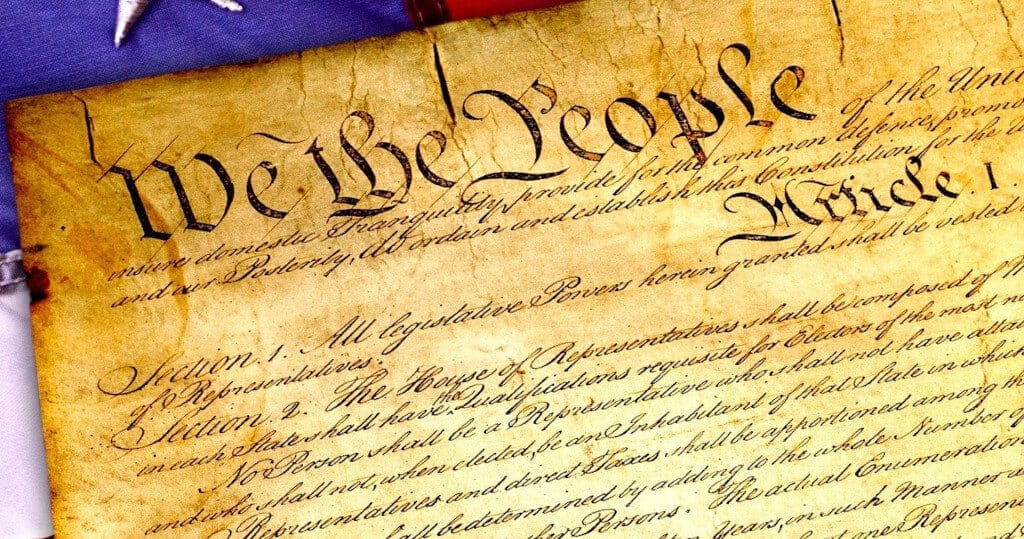
As the word implies, a constitution is a collection, so this grouping of laws creates a set of expectations for how a government will function.
The political representatives are expected to follow the rules and laws set down in the constitution to run the government.

Get Smarter on US News, History, and the Constitution
Join the thousands of fellow patriots who rely on our 5-minute newsletter to stay informed on the key events and trends that shaped our nation's past and continue to shape its present.
How Does the Constitution Establish the Government?
Typically, a constitution will establish the various branches of the government. It itemizes and defines how these branches will function.

The constitution will also describe what powers the branches of the government have.
Additionally, the constitution will explain and define how the branches of the government will function within their stated powers.
Constitutional Rights and Freedoms
A constitution will also establish and state the citizens’ rights, privileges, and duties.
With the rights of the citizenry spelled out in the constitution, citizens can expect to have these rights guaranteed and not be denied without legal due process.
What Is the Purpose of a Constitution?
A constitution functions on several important principles. A country’s constitution defines the type of government a country has and forms the basis for that nation’s sovereignty.

It does this by creating the branches of government and a separation of the powers of those branches.
It also defines how each branch is independent of one another and how they are dependent on each other.
In so doing, a constitution lays out the procedures the branches of the government will follow while carrying out their constitutional tasks and responsibilities.
An essential function of a constitution is to direct the state and federal governments in making legislation.
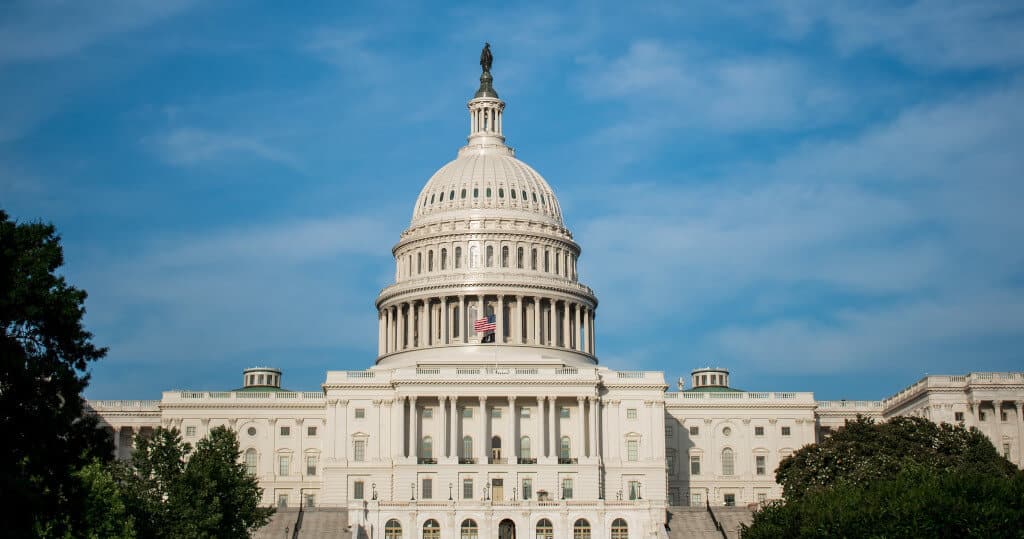
It does this by laying out procedures for the roles of legislation, administration, and the execution of the mechanics of the government.
A constitution provides for a judicial review system to ensure legislation’s constitutionality.
Checks and Balances of a Constitution
Finally, a constitution acts as a check against the misuse of power by providing for accountability of the government and the representatives working therein to the country’s citizens.
Importance of a Constitution
Arguably, the most important function of a constitution is to provide for a set of fundamental rights to the country’s citizens.

These fundamental rights are safeguarded by listing those rights, the checks and balances of the governmental structure, and the separation of powers that protect those rights.
Why Do We Need a Constitution?
Why does a country need a constitution?
What purpose does it serve?
Here are some reasons why a constitution is needed:
- A constitution provides for the rule of a nation.
- A constitution provides for a separation of governing powers.
- A constitution divides power throughout the country between the states and the federal government.
- A constitution forms the relationship between a nation’s people and government.
- A constitution sets the standards, principles, and procedures for the peaceful rule of law.
- A constitution provides for the rights of the citizens living within the country.
- A constitution allows for diverse groups of people to live peacefully together.
What Alternatives Are There to a Constitution?
There are types of national governments that are not based on a constitution. Any country that allows unlimited power to the national rulers or little control over those in authority would be a non-constitutional government.
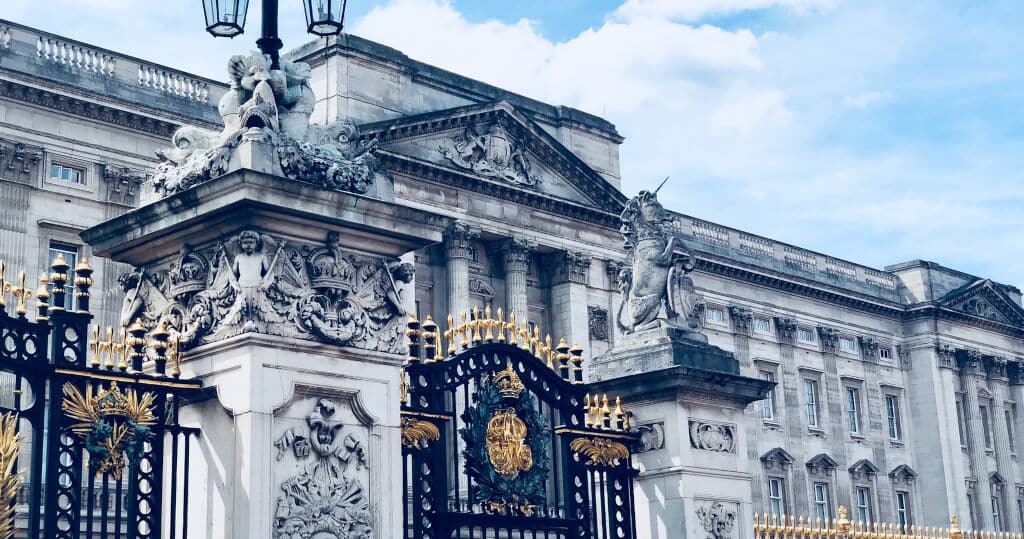
A Non-Constitutional Government
Generally, a nation ruled by hereditary monarchs or dictators is considered a non-constitutional country. In this situation, the person in power is the basis for the law of the land.
A non-constitutional government is not formed through voter consent and cannot be removed through legal means.
The Constitution of the United States
The United States Constitution is the basis for creating the United States of America. It is at the same time the basis for the government that rules and runs the United States.
The constitution provides certain rights for citizens of the United States by defining those rights and the law based on those rights.
The United States Constitution provides for a separation of powers with a set of checks and balances within the three branches of the federal government.
The constitution does this with the establishment of the three branches of government.
- The Legislative Branch
- The Executive Branch
- The Judicial Branch
The constitution specifies that the Legislative Branch makes the laws to run the country, the Executive Branch has the authority to execute the laws, and the Judicial Branch interprets the laws to make sure they conform to the dictates of the Constitution.
First Written Constitution
The United States was the first nation in the world to create a constitution. The United States Constitution was formed in 1788 by the Philadelphia Constitutional Convention, whose delegates developed the constitutional concept.
It was a unique and innovative idea devised by Founding Fathers such as George Washington, Thomas Jefferson, Benjamin Franklin, and James Madison, as they sought independence from Great Britain.
A constitutional government was a revolutionary innovation that was in stark contrast to the existing governments of the day.
Since then, the concept of constitutionalism has been adopted by many other countries seeking to create a new form of government for themselves.
What Is a Constitution? Quiz
If you would like to download a PDF with our quiz, then please go to:
Alternatively, you can take our online quiz here:
What is a Constitution?
What is a Constitution? Quiz
Frequently Asked Questions
What is a constitution?
What are the three distinct characteristics of the United States Constitution?
How does a constitution establish the government?
Why is a constitution important?
What alternatives are there to a constitution?
How useful was this post?
Click on a star to rate it!
Average rating / 5. Vote count:
No votes so far! Be the first to rate this post.
We are sorry that this post was not useful for you!
Let us improve this post!
Tell us how we can improve this post?
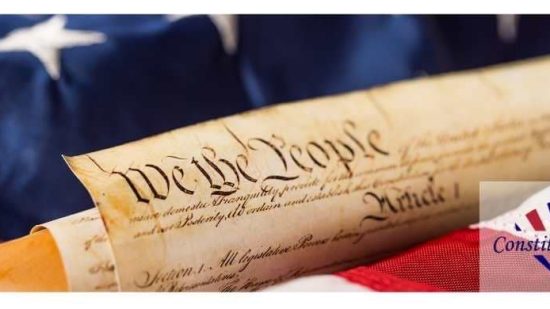
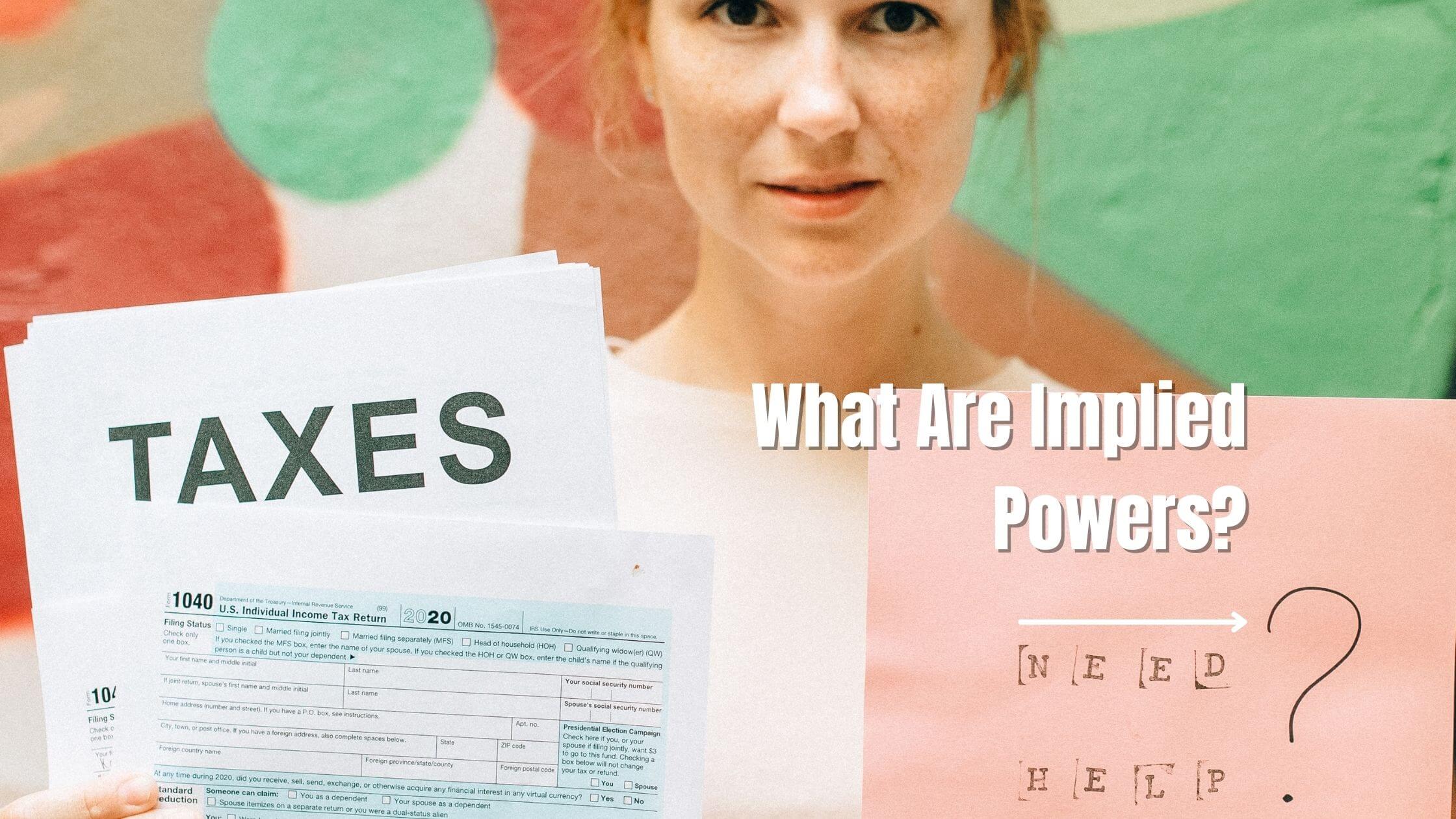

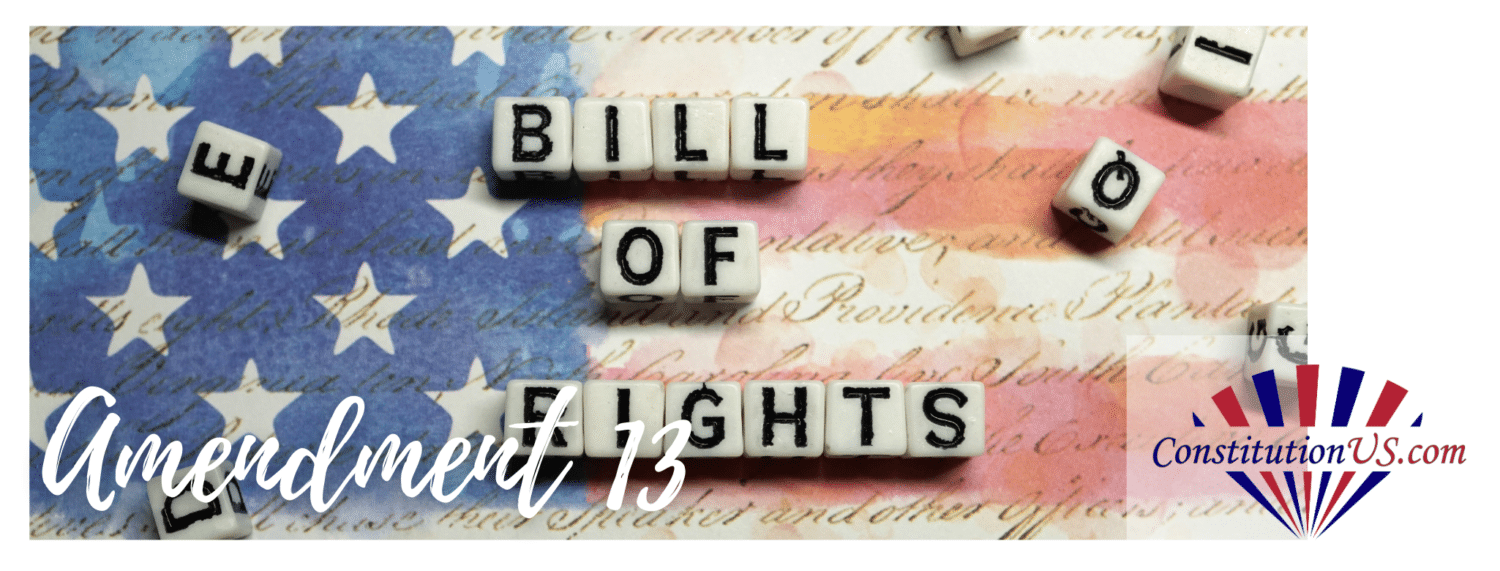
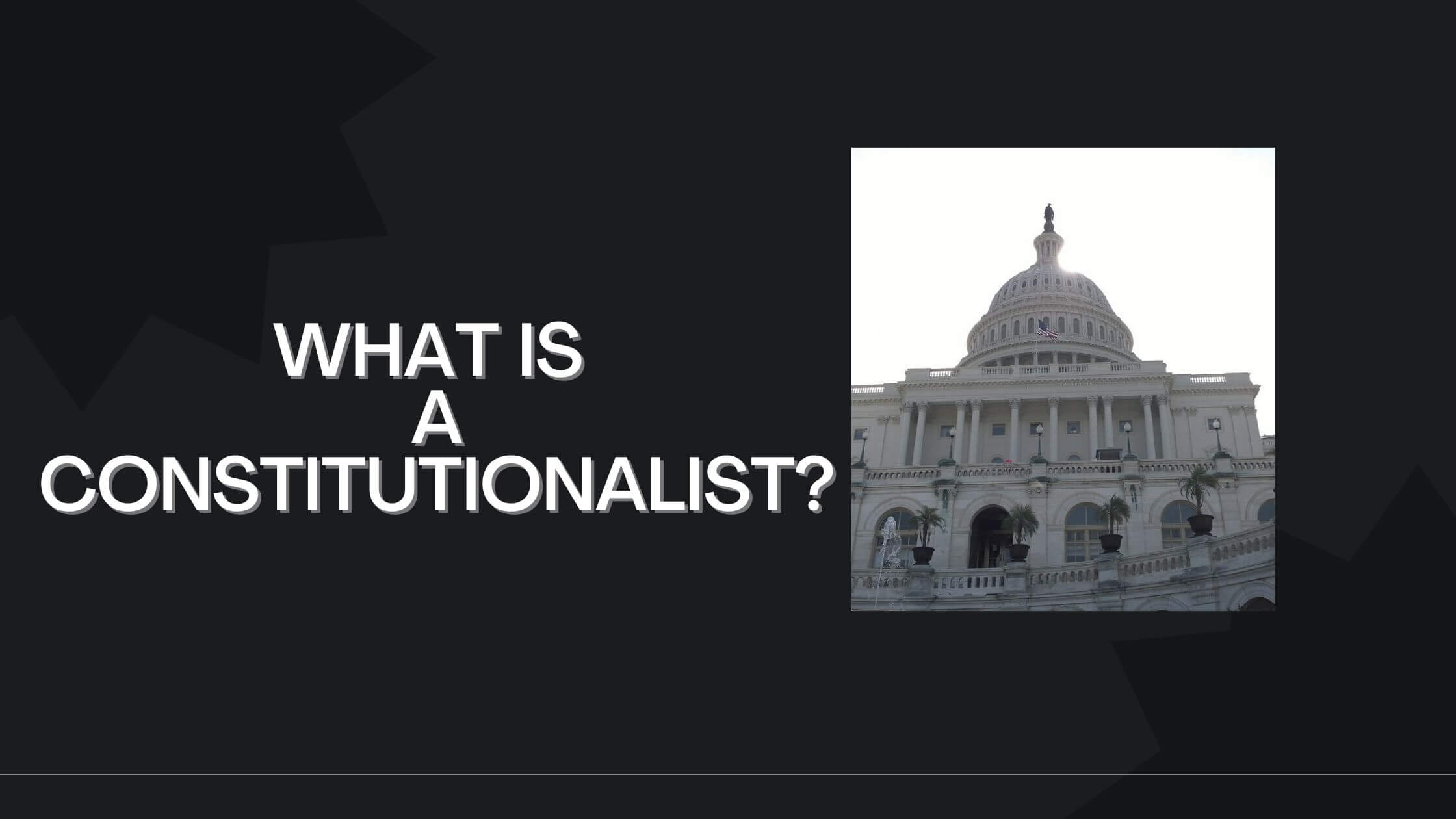
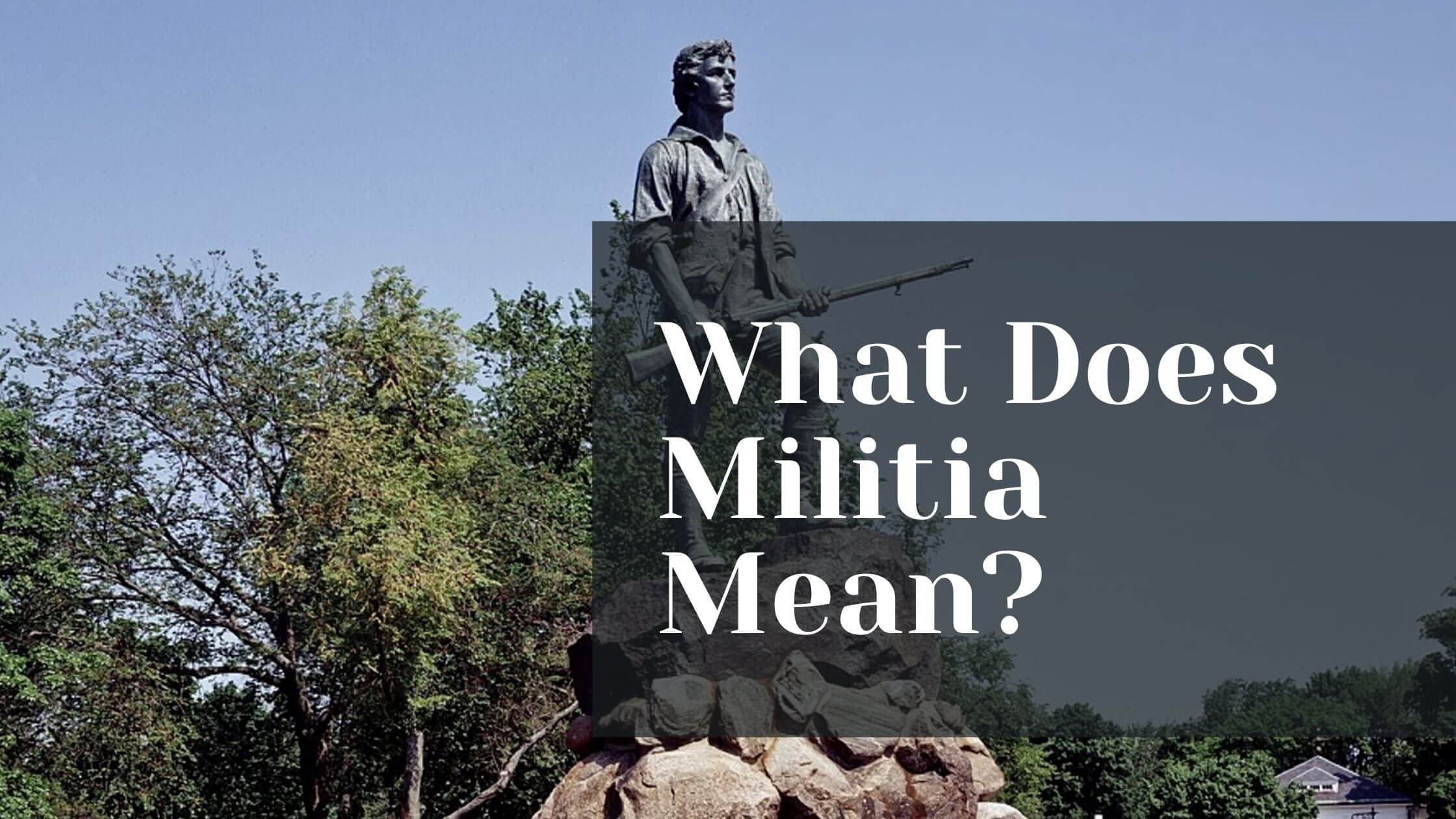

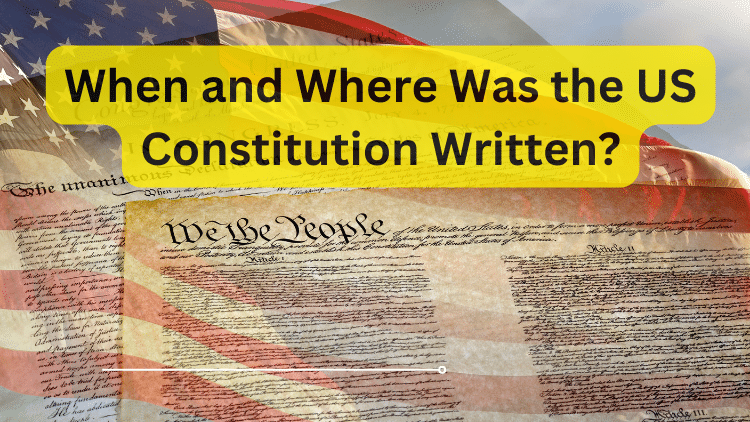
One Response
I believe that a subset to this quality subject would be “The Implications of an Oath/Pledge to the US Constitution “